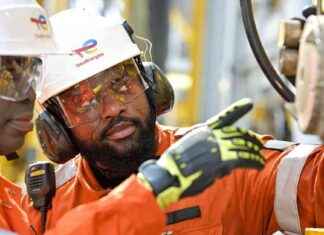The President of the French Republic, Emmanuel Macron, announced, Saturday December 2, in Dubai, United Arab Emirates, on the occasion of the 28th Conference of the Parties (COP28), the signing of two partnerships for “forestry packages”. to the tune of $150 million (€138 million) with Papua New Guinea ($100 million) and the Republic of Congo ($50 million).
Emmanuel Macron also reported that a third partnership with the Democratic Republic of Congo, worth $60 million, was being finalized and that others would follow between now and the organization of COP30 in 2025. .
“The fact that forests have the most vital carbon and biodiversity resources must be paid for. And we must pay the countries which actively protect these forests, explained Emmanuel Macron. The great paradox of our world is that, until now, we have spent a lot of money on reforestation, but without taking action to preserve the already existing forests. (…) Every time we destroy these forests, we delay carbon neutrality. »
The French president therefore wishes to set up “country by country” partnerships, “forestry packages” which have been finalized in recent days and announced today.
The exit from coal, a priority
During another press conference, Saturday noon, Emmanuel Macron welcomed the fact that France “has respected its objectives year after year since 2017”. And to ensure that the country has reduced its CO2 emissions by more than 2% per year.
The President of the Republic also recalled that France would “completely exit coal in 2027 when [it will] have finished converting [its] coal-fired power plants to other non-fossil energies.”
He also declared that the main objectives were to “push the G7 countries to set an example in getting out of coal as quickly as possible” and to support “emerging countries, which have a responsibility in this area, because they are large consumers, to do so, through several instruments”, such as “just energy transition” programs.
Civil nuclear defense
Emmanuel Macron also spoke on Saturday about civil nuclear power, affirming that it was “clean energy” and an “indispensable solution against climate change”. He also defended its use, ensuring that it creates jobs, strategic autonomy and sovereignty, and low carbon emissions.
France is, moreover, one of the twenty-two countries signatories to a joint declaration calling for tripling nuclear energy capacities in the world by 2050, compared to 2020, the objective being to reduce dependence on coal and gas, the major challenge of this COP.
On Friday, the French president affirmed that, “from 2030, fossil fuels will be largely in the minority in the French energy mix”, that we should definitively turn the page on oil “by 2040-2045”, and that of gas by 2050.






